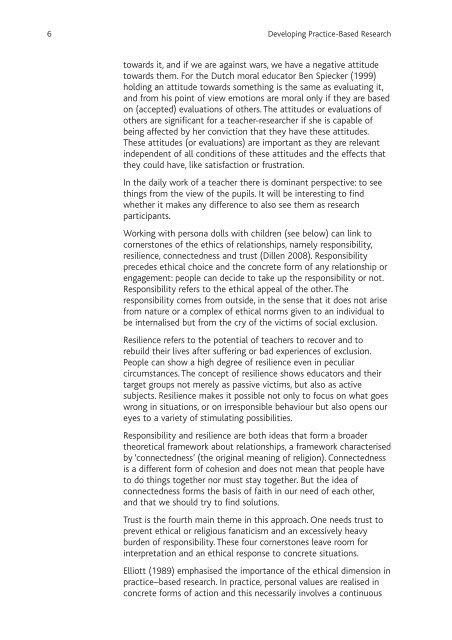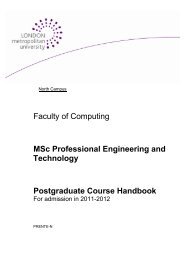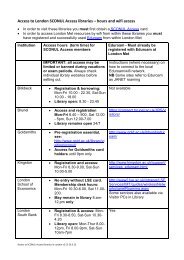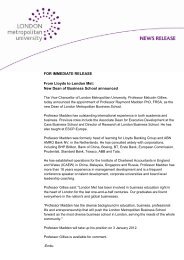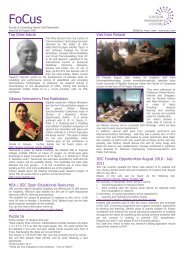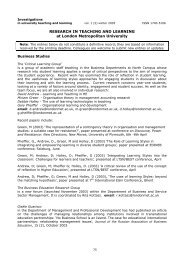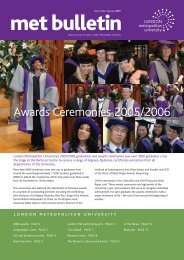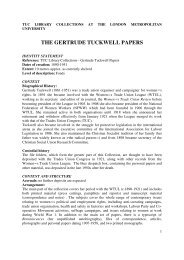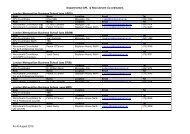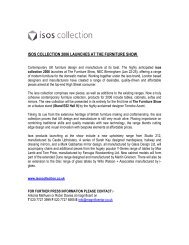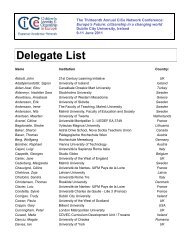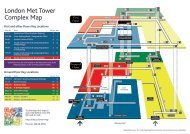Developing practice-based research with persona dolls for
Developing practice-based research with persona dolls for
Developing practice-based research with persona dolls for
You also want an ePaper? Increase the reach of your titles
YUMPU automatically turns print PDFs into web optimized ePapers that Google loves.
6<br />
<strong>Developing</strong> Practice-Based Research<br />
towards it, and if we are against wars, we have a negative attitude<br />
towards them. For the Dutch moral educator Ben Spiecker (1999)<br />
holding an attitude towards something is the same as evaluating it,<br />
and from his point of view emotions are moral only if they are <strong>based</strong><br />
on (accepted) evaluations of others. The attitudes or evaluations of<br />
others are significant <strong>for</strong> a teacher-<strong>research</strong>er if she is capable of<br />
being affected by her conviction that they have these attitudes.<br />
These attitudes (or evaluations) are important as they are relevant<br />
independent of all conditions of these attitudes and the effects that<br />
they could have, like satisfaction or frustration.<br />
In the daily work of a teacher there is dominant perspective: to see<br />
things from the view of the pupils. It will be interesting to find<br />
whether it makes any difference to also see them as <strong>research</strong><br />
participants.<br />
Working <strong>with</strong> <strong>persona</strong> <strong>dolls</strong> <strong>with</strong> children (see below) can link to<br />
cornerstones of the ethics of relationships, namely responsibility,<br />
resilience, connectedness and trust (Dillen 2008). Responsibility<br />
precedes ethical choice and the concrete <strong>for</strong>m of any relationship or<br />
engagement: people can decide to take up the responsibility or not.<br />
Responsibility refers to the ethical appeal of the other. The<br />
responsibility comes from outside, in the sense that it does not arise<br />
from nature or a complex of ethical norms given to an individual to<br />
be internalised but from the cry of the victims of social exclusion.<br />
Resilience refers to the potential of teachers to recover and to<br />
rebuild their lives after suffering or bad experiences of exclusion.<br />
People can show a high degree of resilience even in peculiar<br />
circumstances. The concept of resilience shows educators and their<br />
target groups not merely as passive victims, but also as active<br />
subjects. Resilience makes it possible not only to focus on what goes<br />
wrong in situations, or on irresponsible behaviour but also opens our<br />
eyes to a variety of stimulating possibilities.<br />
Responsibility and resilience are both ideas that <strong>for</strong>m a broader<br />
theoretical framework about relationships, a framework characterised<br />
by ‘connectedness’ (the original meaning of religion). Connectedness<br />
is a different <strong>for</strong>m of cohesion and does not mean that people have<br />
to do things together nor must stay together. But the idea of<br />
connectedness <strong>for</strong>ms the basis of faith in our need of each other,<br />
and that we should try to find solutions.<br />
Trust is the fourth main theme in this approach. One needs trust to<br />
prevent ethical or religious fanaticism and an excessively heavy<br />
burden of responsibility. These four cornerstones leave room <strong>for</strong><br />
interpretation and an ethical response to concrete situations.<br />
Elliott (1989) emphasised the importance of the ethical dimension in<br />
<strong>practice</strong>–<strong>based</strong> <strong>research</strong>. In <strong>practice</strong>, <strong>persona</strong>l values are realised in<br />
concrete <strong>for</strong>ms of action and this necessarily involves a continuous


